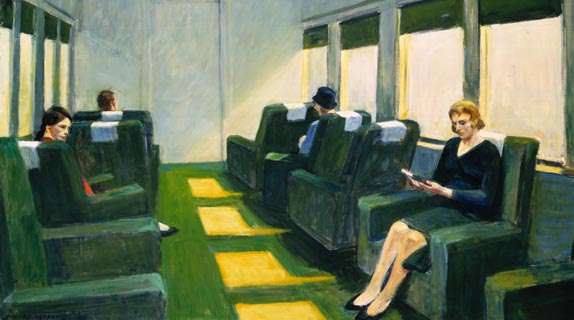
The pensive man...He sees that eagle float
For which the intricate Alps are a single nest.
Wallace Stevens, from "Connoisseur of Chaos"
Two recent links set out the basic aims of religion--Ron Rosenbaum, in a welcome apologia for agnosticism (as opposed to blustery atheism), points out that science has never (yet) delivered on the central question of: why is there something rather than nothing? Marcelo Gleiser, over on NPR's commendably cosmic 13.7 blog, proposes death (i.e. the valorization of life) as a basis for a transcendent spiritual ecology. Basically, how did we get here, and why do we have to leave so fast?
In the currently popular effort to bridge science and religion, Gleiser seeks some universal principle within human nature and religious impulse that will supersede differences. And yet, if one can forgive mere contrariness, it occurred to me: what if the most universal principle of human religiosity is in fact diversity of belief? What if that which "unites" us is actually our tendency to form "our" worldviews in opposition to "theirs?"
Much research in evolutionary psychology, echoing millenia of intuitive observation of human nature, suggests that human beings may be wired for "us and them" thinking, for thinking in binaries, for forming "in" groups and "out" groups. We define ourselves by contrast, for better or worse (we may think it is mainly the latter, but in evolutionary terms it may be otherwise). Male vs. female. White vs. black. Old vs. young. Liberal vs. conservative. Rich vs. poor. Yankees vs. Red Sox.
This needn't mean that humanity is doomed to internecine nastiness, but it does suggest that populations will tend to resist conformity of thought. Wouldn't it be nice to rise above the science vs. religion debate? Sure, just as it would be great if Republicans could pal around with Democrats, or if Protestants and Catholics could agree to bury doctrinal differences.
History arguably consists of the vicissitudes and machinations of contrasts. The now generally mocked "end of history" forecast in the 1990's was apparently premature. Why do we mourn the declining diversity of culture or language, yet celebrate the notion of religious diversity merging into some fuzzy "reverence for life?" The latter risks both the incommunicably idiosyncratic and the coldly abstract; successful religions generally depend on persuasive personal narratives that bind communities together.
In other words, religion is not contingently parochial, it is necessarily so, presupposing the community of those who "get it" versus those who don't. And agnostics and atheists define themselves in opposition most of all; arguably belief preceded disbelief. If a totalizing belief system were ever to take over the earth, whether it be the Catholic Church, a Muslim caliphate, or an atheistic regime, then the next day heresy would break out somewhere. Unless or until the seemingly unanswerable questions are answered, incompatible belief systems will persist, which should be okay.












